Georgia: "My dad brought me into studios from the age of six - there’s a picture of me as a kid on his Juno on a Leftfield 12” somewhere!"
Solo artist, collaborator, songwriter, producer, remixer and drummer Georgia Barnes is also a self-confessed synth nerd, which she has every right to blame on her upbringing. Here she explains how she works within that electronic world with producers and artists including Rostam, William Orbit and Olly Alexander…
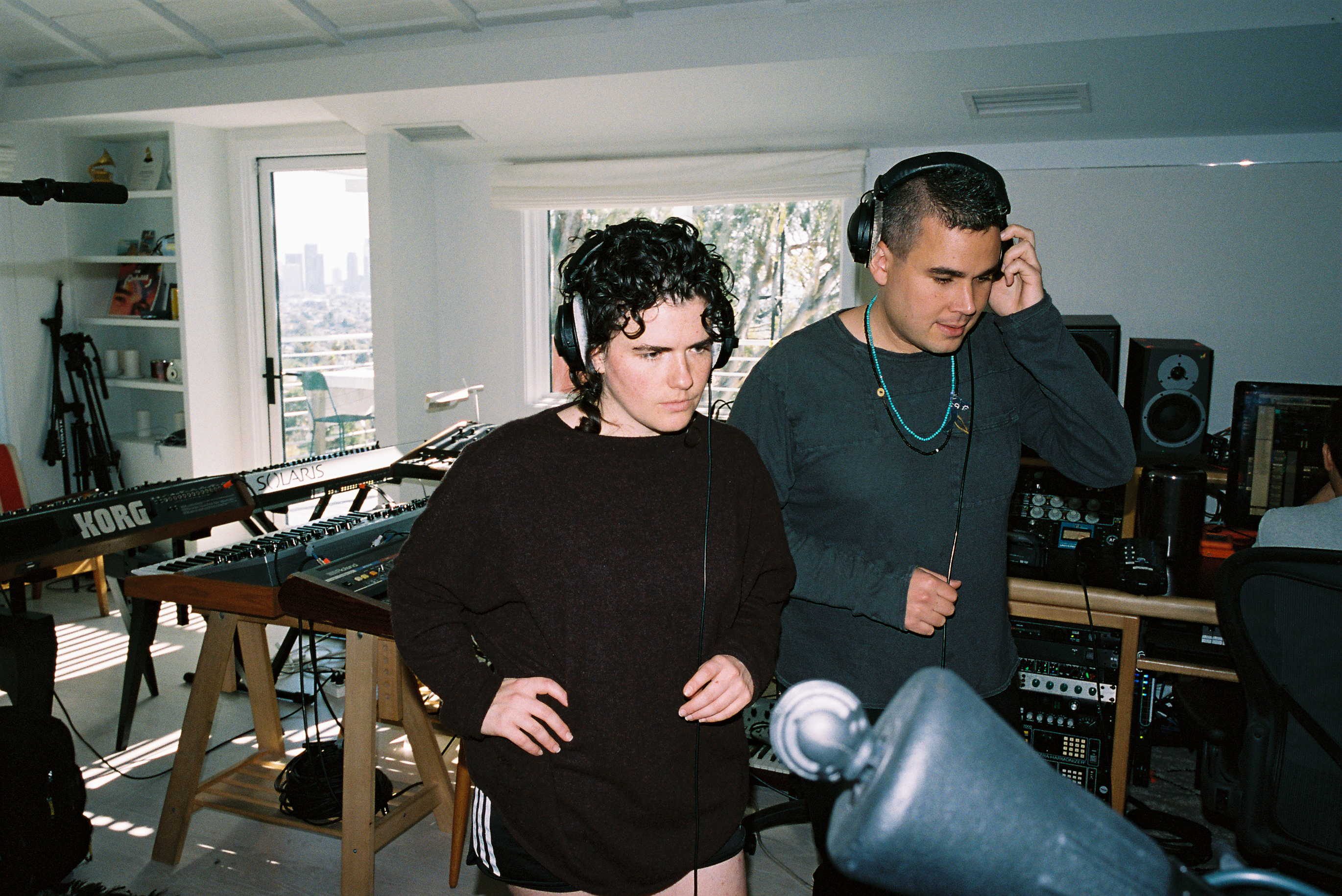
Having been born and raised in a studio where one of the most iconic electronic albums was recorded, Leftfield’s Leftism, it’s no surprise that Georgia Barnes is something of a synth geek. “My dad brought me into studios from the age of six,” she laughs. “There’s an actual picture of me as a kid on my dad’s Juno on a Leftfield 12” somewhere!”
Her dad is Leftfield’s Neil Barnes, but rather than living in the shadow of the legendary producer, Georgia has carved out her own successful career, with more strings in it than one of her classic synths. She has produced three solo albums, including the Mercury Prize-nominated Seeking Thrills in 2020 and last year’s Euphoric.
Then, there are the collaborations where Georgia has variously drummed, rapped, sung, programmed, remixed or written for artists including Jessie Ware, Gorillaz, Mura Masa, Years & Years and William Orbit.
Being active in so many strands of music is key, she says – “there are so many avenues to explore so I’m doing as much as I can, and just take the opportunities” – and with such a varied set of opportunities already taken, who better to ask about raising your game?
How do you approach working on a remix or production?
“The vocal is what draws people in, so I make sure I understand what the singer is trying to convey, and then create the world they want. Some producers will chuck everything in, but because I’m a singer I’m concerned about anything getting in the way of the vocal.”
How does it work with a typical collaboration for you?
Get the MusicRadar Newsletter
Want all the hottest music and gear news, reviews, deals, features and more, direct to your inbox? Sign up here.
“Sometimes I get demos, just the skeleton, the singer and maybe some guitar. And then it’s just put the ‘Georgia world’ into that. Sometimes I’ll start from scratch with an artist. Every song is different, an amazing world and within that you can go anywhere. I’m not traditional and approach it quite experimentally. I don’t use that many plugins, I’m just really obsessed with synths.”
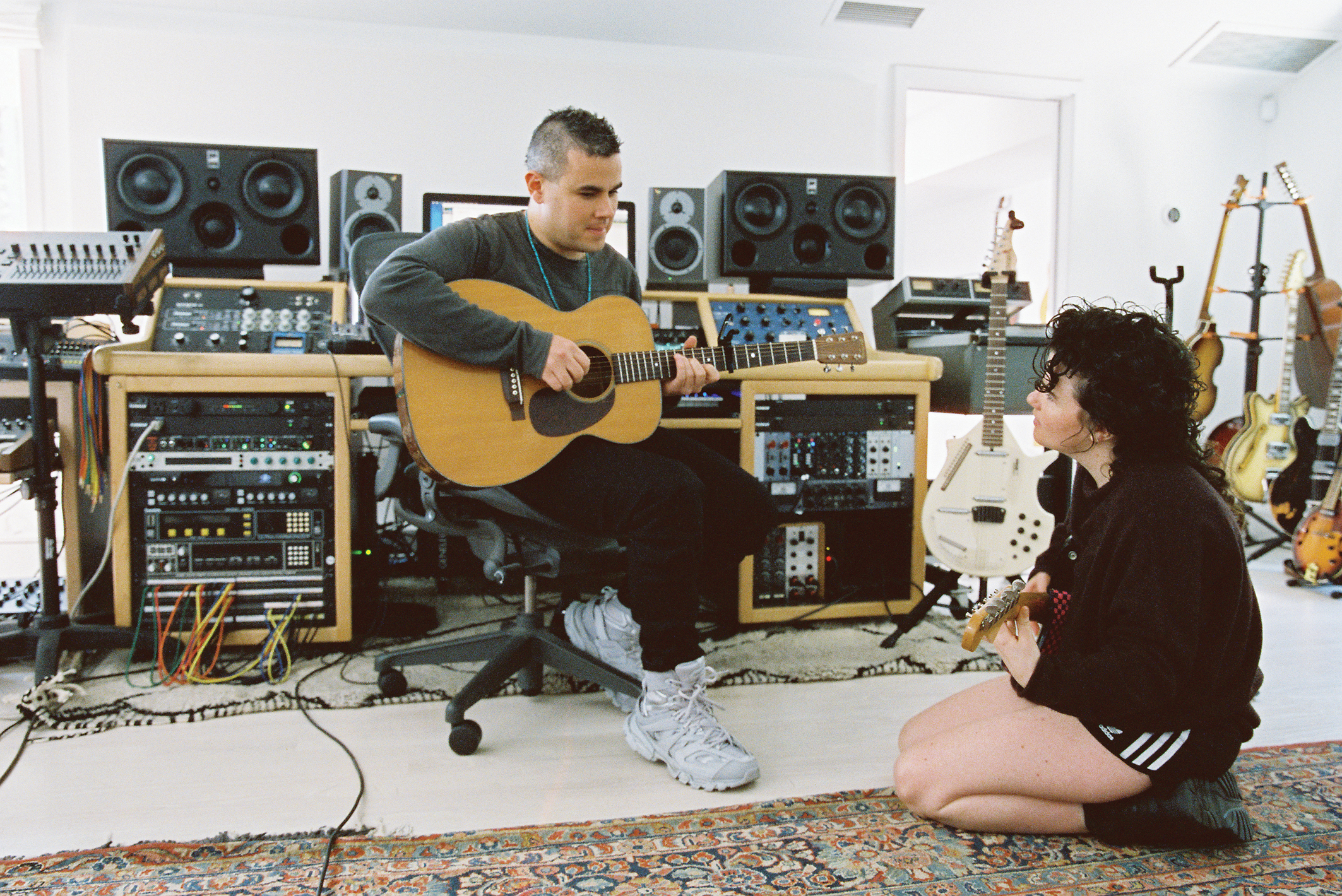
What is that ‘Georgia world’ of synths?
“I was fortunate to be introduced to it at an early age – literally born in a flat surrounded by synths where Leftfield made Leftism, so my love for synths is born out of that. The first synths my dad introduced me to were Korgs – he got me a Poly 6 and a MonoPoly. As I got older, a Minimoog Model D came in, one of the greatest synths with such great bass sounds.”
What do you use now?
“I’ve got the Model D, my Korgs and my Rolands. I divide them into how they benefit a mix so I’ve got my bass synths like my SH-101, I love the bass sound on that, it’s just house music, and I’ve got the Minimoog there. I’ve also got the Behringer Poly D as I wanted to see the difference. It’s brilliant; an original Model D is gonna set you back seven or eight grand, and those Poly Ds are about 600 quid. My original Model D is from 1971 and has a warmth to it which you can’t really recreate, though.
“I’ve also got loads of digital synths like the Roland JD-800, and recently got a Groove Synthesis 3rd Wave. My dad goes on about the Waldorf Wave being the greatest synth, so wavetable synthesis was something I wanted to get into. I also splashed out on an original ARP 2600, probably the best thing in my studio.”
When you get a production project, remix or collaboration, are people expecting you to bring these synth sounds in?
“I don’t think they do. Very often it’s a combination of A&Rs and they are fans of what I do and think I can bring something to their artists. But when it came to Olly Alexander from Years & Years, he’d heard about my studio and wanted to see it. Some artists are intrigued by synths and are really hands-on.”
What advice would you have for recording vocals?
“It often doesn’t matter what mic you use; that’s a bit of a myth. A lot of great vocals that we know today were recorded on cheap microphones. And don’t be afraid of comping – it doesn’t have to be one great take. Also, sometimes use the demo vocal as the final vocal. That happened on Euphoric. With a demo, often in that moment, a singer has expressed something that can’t be recreated.”
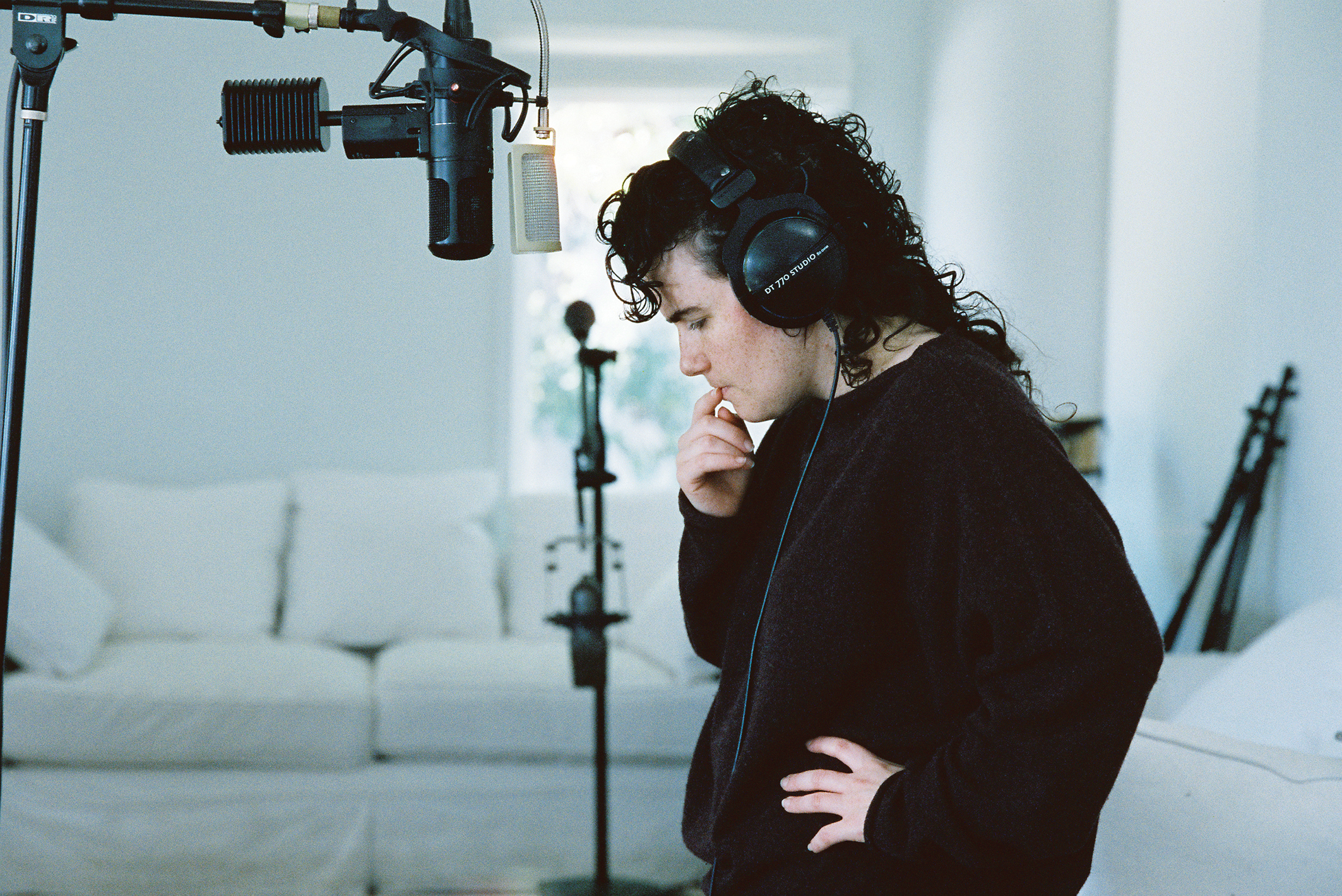
Do you have a system when mixing?
“I think methodically. I put the vocal and drum stems together. This comes from me being a drummer and a singer, but I find those elements are so important. Then I add the bass, synths, guitars and percussion. I learnt this through [producer] Mark Ralph, he laid out everything before he got creative. Then you can see the elements and plan. I’ll solo elements, understand the lyrics, put the vocal front and centre, and then go to whatever synths or guitar elements I need.”
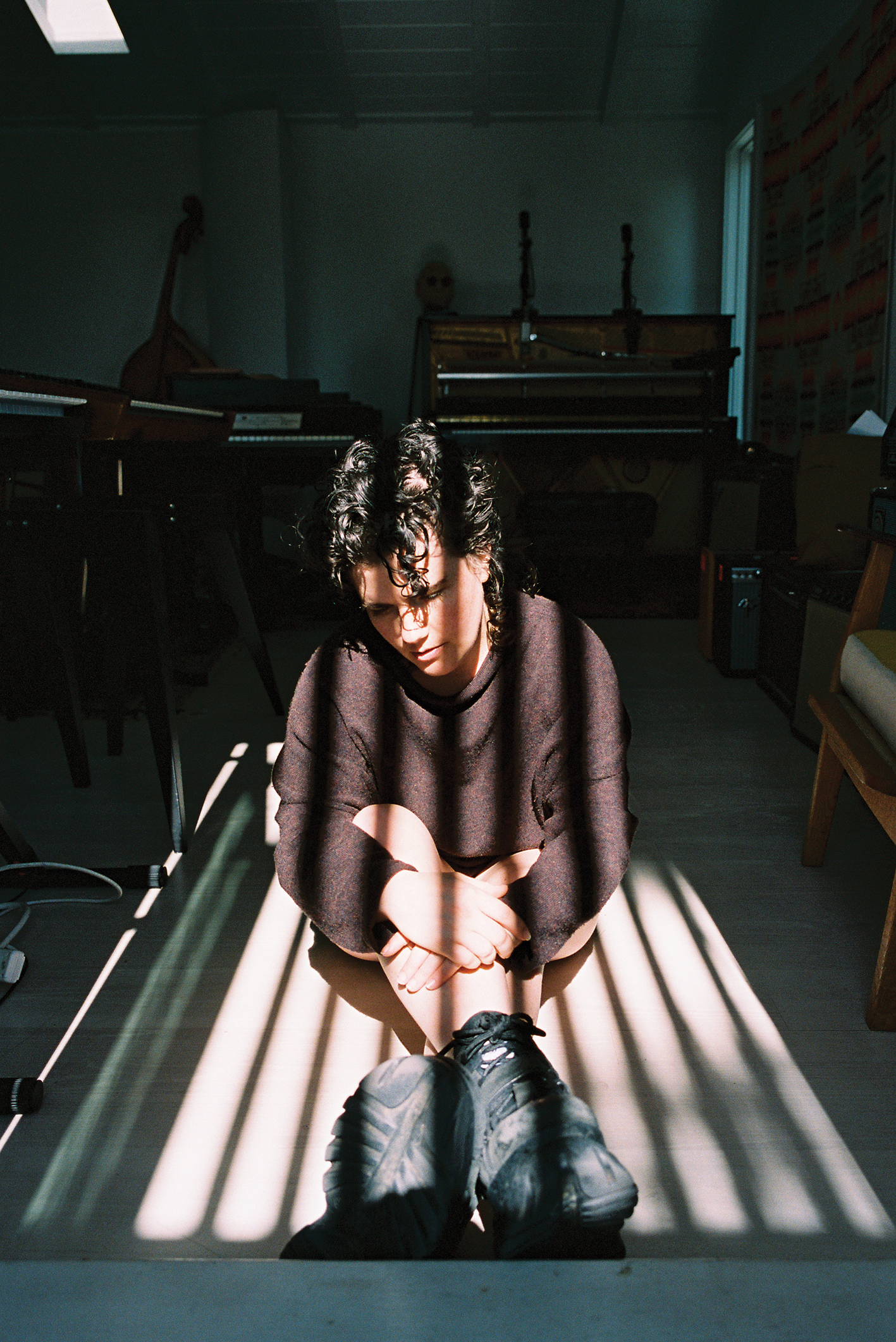
What else besides the vocal do you focus on when producing?
“The low end. It can lift something from demo status to complete mix. It’s not something everyone thinks about but I make sure it stands out.”
80% of being in the music industry is problem-solving. I spent Christmas soldering leads! It’s hard work but I like that
Do you have certain go-to production processes?
“The vocal goes through Neve 1073 preamps, and then into an 1176 compressor. I learned working with Rostam [Batmanglij, who worked on Euphoric] that you can put any mic through that combination.”
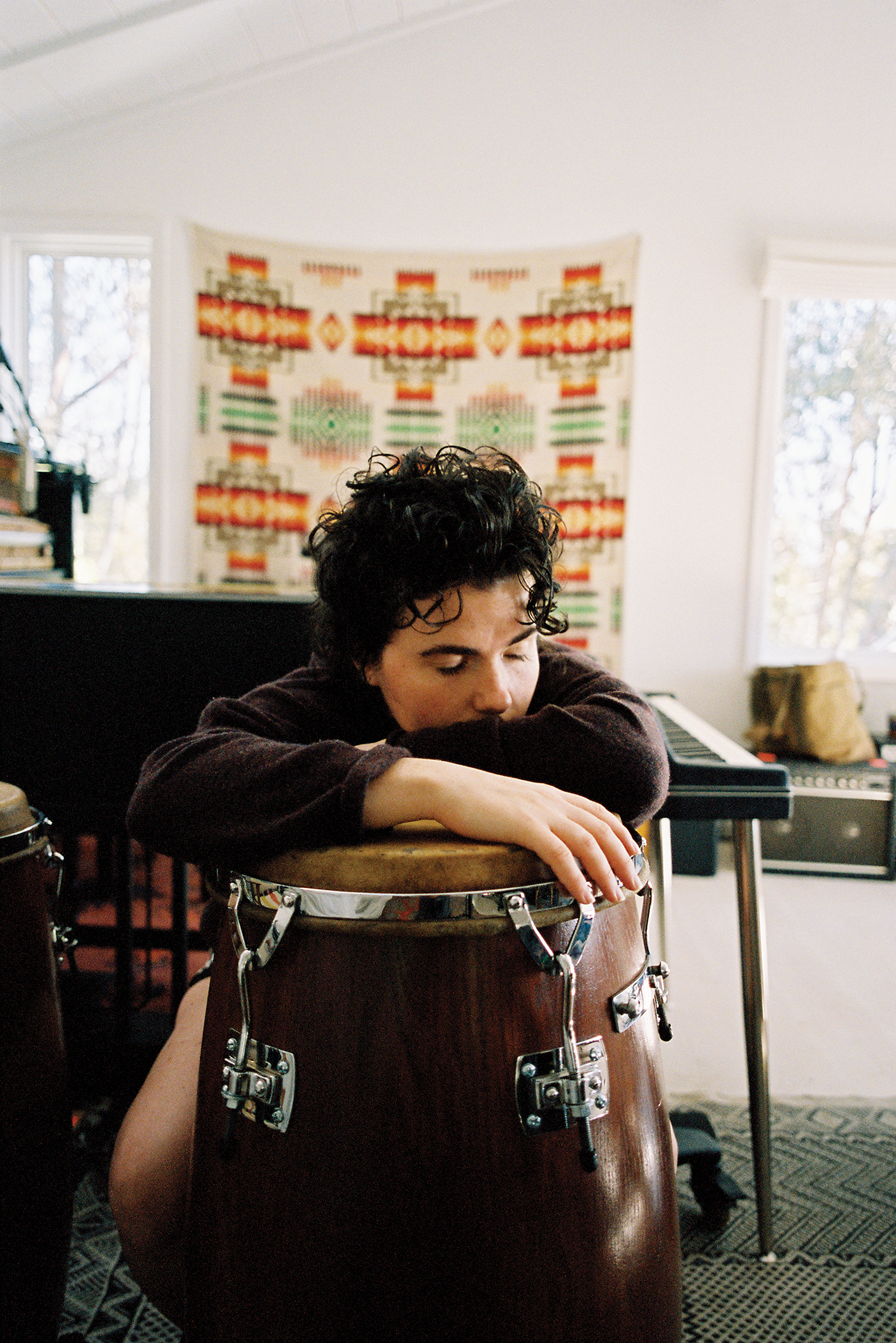
How do you know when a mix is done?
“I always know! Some producers go through, like, 70 mixes. I’m very much of the mindset, ‘the mix is done, let’s get it out there’. If the vocal is sitting right, whether it’s going to cut through on the radio, then I’m like, ‘let’s just go’.”
What one piece of advice would you give people creating demos with the hope of releasing them?
“If it’s pure electronic music, then there has got to be an element of fucked-up-ness about it. There’s so much drab electronic music, but there should always be something in it, a sound where you are like, ‘Jesus – what is that?’. That one sound where they’ve gone ‘fuck it, let’s just leave that in’.”
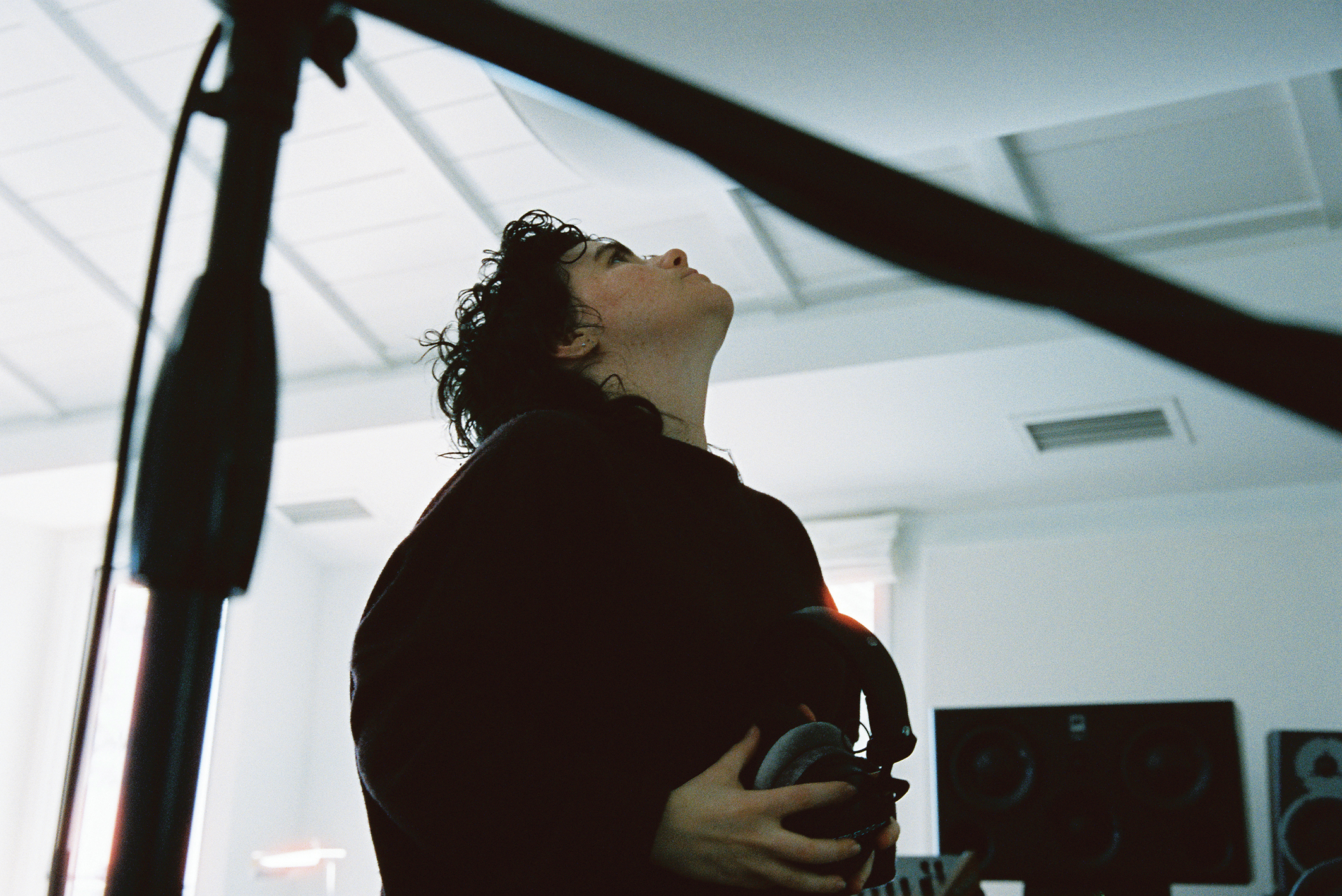
What is your advice to people wanting to get into the industry?
“It’s an unsteady period, but there are avenues to explore and make a great career. It just requires a bit of getting yourself in there. It’s hard work but I like that. 80% of it is problem-solving. I spent most of Christmas soldering leads! But seeing a song that you’ve written being performed or hearing it on the radio, I love it. And also, sharing a studio with people, moments when they expose themselves in such vulnerable ways, that psychology is really interesting.”
We have to ask: any more plans to collaborate with your dad?
“Maybe. How they created Leftism is mind-boggling, and I respect that. But it would be hard. We might end up killing each other!”
Georgia is playing shows across Europe this summer. Click here for tickets.


Future Music is the number one magazine for today's producers. Packed with technique and technology we'll help you make great new music. All-access artist interviews, in-depth gear reviews, essential production tutorials and much more. Every marvellous monthly edition features reliable reviews of the latest and greatest hardware and software technology and techniques, unparalleled advice, in-depth interviews, sensational free samples and so much more to improve the experience and outcome of your music-making.
“I feel like that song had everything we needed to come back with”: Bring Me The Horizon’s Lee Malia on Shadow Moses, its riff and the secrets behind its tone, and why it was the right anthem at the right time
“I said, ‘Are we sure we can write a song about death?’”: The story of Mike + The Mechanics' classic No.1 The Living Years










